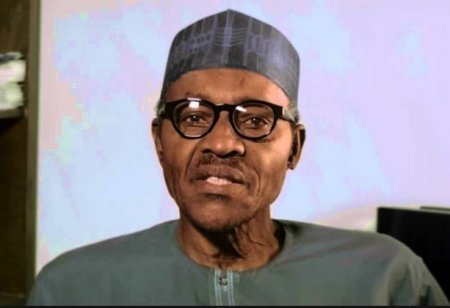P
ProfRem
Guest
The presidency on Wednesday shared a “factsheet on the migrant crisis involving Nigerian citizens.”
In the statement released, the Presidency itemised the efforts of the Muhammadu Buhari administration to resolve the migrant crisis affecting Nigerians.
CNN had reported showed that some migrants including Nigerians were being sold as slaves in Libya, while the President ondemned the practice, saying the government would ensure all Nigerians stranded in the North African country return home.
Here are 7 Factsheet about the issue according to the Presidency:
1. The Buhari Administration recognises the seriousness of the migrant situation, across West Africa, the Sahel, North Africa, Europe and the Middle East, and is taking steps to decisively address the situation. The President has described news reports of the enslavement of persons in Libya as appalling and unacceptable.
2). President Buhari has assured that all Nigerians in Libya and elsewhere will be assisted to return safely to Nigeria. More than 5,000 Nigerians have returned home in 2017, according to NEMA. About 90 percent of them returned from Libya, and the remaining from Saudi Arabia. Repatriation is ongoing.
3). President Buhari has directed the constitution of a Committee of relevant Ministries, Departments and Agencies (MDAs) and law enforcement agencies to address the issues.

4). In line with the President’s mandate, on Wednesday November 29, Vice President Osinbajo chaired a meeting attended by the Secretary to the Government of the Federation (SGF), Minister of Justice, Minister of State for Foreign Affairs, Directors-General of the National Emergency Management Agency (NEMA), National Agency for the Prohibition of Trafficking in Persons (NAPTIP), and the National Commission for Refugees, Migrants and Internally Displaced Persons (NCFRMI).
5). The three agencies have been working with the International Organisation for Migration (IOM) to resettle and reintegrate returning Nigerians. These agencies are also stepping up their education and sensitisation campaigns, targeted at vulnerable persons.
6). Nigeria’s security agencies are also collaborating to arrest and prosecute the local and international criminal networks responsible for human trafficking and enslavement.
7). The Ministry of Foreign Affairs is strengthening its engagements with concerned foreign governments, to ensure that Nigerian citizens are better treated and protected abroad.
In the statement released, the Presidency itemised the efforts of the Muhammadu Buhari administration to resolve the migrant crisis affecting Nigerians.
CNN had reported showed that some migrants including Nigerians were being sold as slaves in Libya, while the President ondemned the practice, saying the government would ensure all Nigerians stranded in the North African country return home.
Here are 7 Factsheet about the issue according to the Presidency:
1. The Buhari Administration recognises the seriousness of the migrant situation, across West Africa, the Sahel, North Africa, Europe and the Middle East, and is taking steps to decisively address the situation. The President has described news reports of the enslavement of persons in Libya as appalling and unacceptable.
2). President Buhari has assured that all Nigerians in Libya and elsewhere will be assisted to return safely to Nigeria. More than 5,000 Nigerians have returned home in 2017, according to NEMA. About 90 percent of them returned from Libya, and the remaining from Saudi Arabia. Repatriation is ongoing.
3). President Buhari has directed the constitution of a Committee of relevant Ministries, Departments and Agencies (MDAs) and law enforcement agencies to address the issues.

4). In line with the President’s mandate, on Wednesday November 29, Vice President Osinbajo chaired a meeting attended by the Secretary to the Government of the Federation (SGF), Minister of Justice, Minister of State for Foreign Affairs, Directors-General of the National Emergency Management Agency (NEMA), National Agency for the Prohibition of Trafficking in Persons (NAPTIP), and the National Commission for Refugees, Migrants and Internally Displaced Persons (NCFRMI).
5). The three agencies have been working with the International Organisation for Migration (IOM) to resettle and reintegrate returning Nigerians. These agencies are also stepping up their education and sensitisation campaigns, targeted at vulnerable persons.
6). Nigeria’s security agencies are also collaborating to arrest and prosecute the local and international criminal networks responsible for human trafficking and enslavement.
7). The Ministry of Foreign Affairs is strengthening its engagements with concerned foreign governments, to ensure that Nigerian citizens are better treated and protected abroad.

